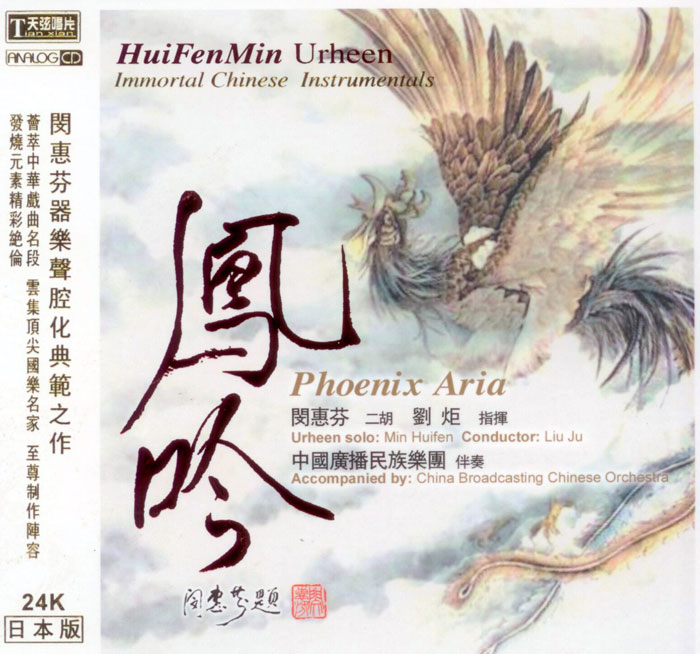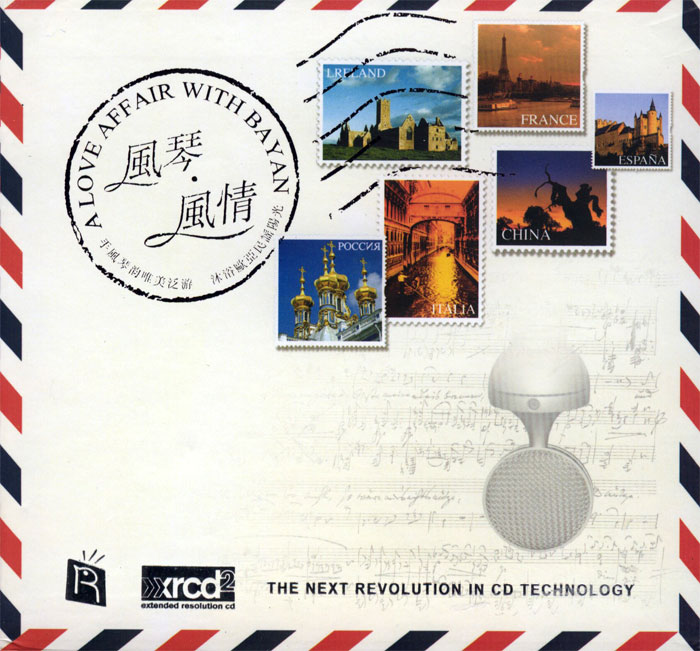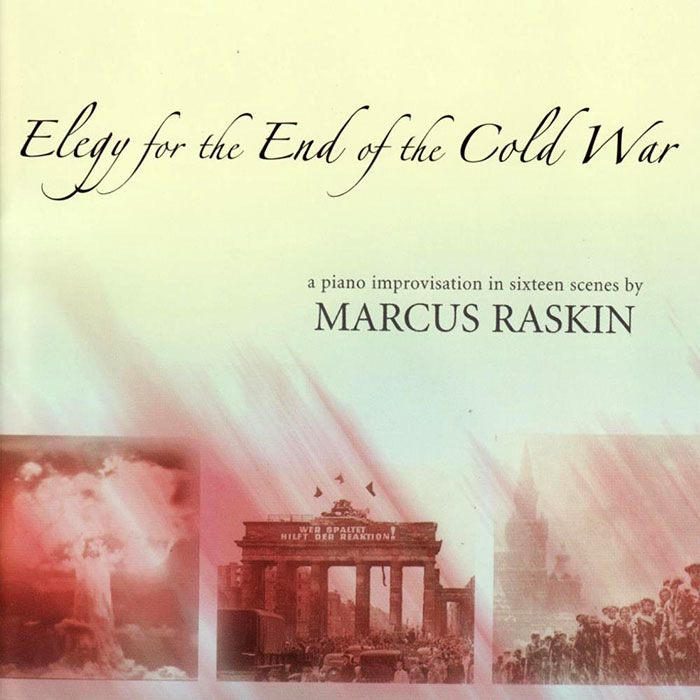Logowanie
Dlaczego wszystkjie inne nie brzmią tak jak te?
SpeakersCorner - OSTATNIE!!!!
RAVEL, DEBUSSY, Paul Paray, Detroit Symphony Orchestra
Prelude a l'Apres-midi d'un faune / Petite Suite / Valses nobles et sentimentales / Le Tombeau de Couperin
Samozapłon gwarantowany - Himalaje sztuki audiofilskiej
PROKOFIEV, Stanislaw Skrowaczewski, Minneapolis Symphony Orchestra
Romeo and Juliet
Stanisław Skrowaczewski,
✟ 22-02-2017
BARTOK, Antal Dorati, Philharmonia Hungarica
Dance Suite / Two Portraits / Two Excerpts From 'Mikrokosmos'
Samozapłon gwarantowany - Himalaje sztuki audiofilskiej
ENESCU, LISZT, Antal Dorati, The London Symphony Orchestra
Two Roumanian Rhapsodies / Hungarian Rhapsody Nos. 2 & 3
Samozapłon gwarantowany - Himalaje sztuki audiofilskiej
Winylowy niezbędnik
ClearAudio
Cartridge Alignment Gauge - uniwersalny przyrząd do ustawiania geometrii wkładki i ramienia
Jedyny na rynku, tak wszechstronny i właściwy do każdego typu gramofonu!
ClearAudio
Harmo-nicer - nie tylko mata gramofonowa
Najlepsze rozwiązania leżą tuż obok
IDEALNA MATA ANTYPOŚLIZGOWA I ANTYWIBRACYJNA.
Wzorcowe
Carmen Gomes
Celebrating the art and spirit of music - vol. 5 - Reference Songs
- CHCECIE TO WIERZCIE, CHCECIE - NIE WIERZCIE, ALE TO NIE JEST ZŁUDZENIE!!!
Petra Rosa, Eddie C.
Celebrating the art and spirit of music - vol. 3 - Pure
warm sophisticated voice...
SAMPLER - STS DIGITAL, Gregor Hamilton
Celebrating the art and spirit of music - vol. 2 - Love songs from Gregor Hamilton
...jak opanować serca bicie?...
SAMPLER - STS DIGITAL
Celebrating the art and spirit of music - vol. 1 - Leonardo Amuedo
Największy romans sopranu z głębokim basem... wiosennym
Lils Mackintosh
Celebrating the art and spirit of music - vol. 4 - A Tribute to Billie Holiday
Uczennica godna swej Mistrzyni
Marcus Raskin
Elegy For The End Of The Cold War
- Marcus Raskin - piano
Brzmienie Mapleshade... Podobnego nie znajdą Państwo nigdzie indziej na świecie. Czym się wyróżnia? Brutalną, wręcz porażającą prawdą naturalnego brzmienia. Dźwięki instrumentów brzmią zrazu niecodziennie. Uzupełnia je genialna wprost scena. Muzycy grają razem, patrzą sobie w oczy, gestykulują, podkreślają emocje gestami, minami, pozą ciała. Wzajemnie się motywują, dialogują. I to słychać w sposób wręcz namacalny. Bo ta właśnie realność lub realizm to kolejny element zaskoczenia od pierwszych sekund odsłuchu tych nagrań. Wszyscy Państwo poczują metafizyczne drgniecie organizmu. Całego, warz z nim i duszy. Bo nie są Państwo przygotowani na dźwięk tak NATURALNY. I idę o zakład... O zakład, ze po kilku sekundach poczują Państwo lekką dezorientację. Nie będą Państwo wiedzieli, co jest tu ważniejsze: brzmienie czy treść. Albo: treść ma znaczenie wtórne wobec takiego brzmienia! Jest też trzecia możliwość: cóż za treść! Ileż zyskuje muzyka dzięki TAKIEMU brzmieniu! Nawet najbardziej awangardowa Czyżby dowód na istnienie 'czystej formy'?! It’s tragic that so few of us know that every great composer from Bach to Saint Saens was a brilliant improvising performer. Their improvs formed the lifeblood of practically every great classical piece you know. Until Marcus sat down at my Steinway, I’d never heard a classical improvisation. What an eye-opener that CD session was! Raskin’s a conservatory-trained pianist turned virtuoso improviser. His CD weaves drama, passion and breathtaking lyricism into a suite of gripping tableaus of the Cold War. I hear fascinating echoes of Liszt’s theatricality, Chopin’s poetry and Rachmaninoff’s thunderous immediacy. But most of all, I’m swept up in the boundless power, the utter sincerity of Marcus’s gorgeous piano-playing. Music: In Time or Out of Time A musician I greatly admire, Pierre Boulez, argues fervently that music must be felt as pure experience—ripped from anecdote, story or event. He assaults the conventional critics: “Shall we ever make up our minds to disregard contexts and to forget the factors so relentlessly insisted upon by the history books? Shall we ever manage to ignore the circumstances, banish them from our memories and bury them in oblivion and take the interior essence of the work as our guide?” (Orientations, p. 261) He goes on to insist that music exists on its own terms outside of history, much in the way mathematicians insist that mathematics is outside time and technology. Yet Boulez confesses that he wants to affect the time in which he lives—and the future as well. “Everyone’s ambition is, roughly speaking, to remain a presence in the affairs of his day and in future utopias.” (p. 521) How can I be a presence without being engaged? As a musician, how can I avoid engaging my music in the moral and political struggles of my day, and in the deepest emotions and paradoxes of humankind? My answer is simple: music can’t escape the world around, the “profane” context. This answer would surely be understood by those who wield power, starting with the church hierarchies of the Middle Ages. Even before them, Plato in The Republic banned certain musical modes. That was no accident. The wielders of power have always bent music to their purposes. I can’t deny that music, ripped from its context, can be appreciated by audiences—or played by performers—who have no knowledge of the composer or his time. But this abstract appreciation pales next to the impact of great music expressing its time and expressing, beyond that, the more timeless themes of political and moral passions. Think of Berg’s Wozzeck, Beethoven’s Fidelio, Hindemith’s Mathis der Mahler or Britten’s War Requiem. But don’t forget the dark side: engaged music can also be a dreadful rationalization for the worst in ourselves. To the Barricades An activist art—which is by no means the only art—illuminates events that may seem incomprehensible—incomprehensible, that is, until touched by an artist who can invoke another level of understanding. In the Elegy I am trying to do just that in order to illuminate the terrifying events of the last two-thirds of the century. To that end my musical medium is improvisation. That is, I use a repetitive musical language similar to the Baroque figured bass. For melodies, I incorporate fragments of popular tunes. In our time these tunes serve to mask an underlying and painful reality. However, inverting this, we can try using popular melodies to unmask hidden realities and emotions. And that, in turn, may help us come to grips with the incomprehensibly cruel ironies of our time. Such uses of music, of course, can be easily burlesqued. For example, movie music may appear to increase tension, delight, fear or pity. But the creation of music for film is almost always dominated by the constraining commercial demands of the film industry. Such music rarely stands alone. Successful music of the kind I’m describing will transcend the “anecdote” or event. Think of Schoenberg’s Survivor from Warsaw. Here Schoenberg certainly succeeds in presenting the unspeakable through music—and then transcends that to assert an indomitable faith. The Shostakovich Piano Trio, another piece that reshapes our moral understanding, weaves in haunting Yiddish melodies to help paint a canvas of rage, terror, madness and hope. Can the emotional power of music reshape moral and political judgments? I say it can—and, since time immemorial, it has. And music should be used for that purpose, without apology by composers, audiences or critics. Notes On The Elegy The Elegy is improvised around sixteen scenes from the Cold War. My notes sketch the barest outline of these scenes and a few of their musical connections: BOMBAST: The first use of nuclear weapons at Hiroshima and Nagasaki. That opening cataclysm defines the cold war era with its attendant fear, terror, hubris and braggadocio. The atom is unleashed less to end the war than to show the Soviets who is to be boss in the postwar world. The sense of terror is created through pounding bass and continuous discord—a lumbering Leviathan emerging from the sea. The theme reoccurs throughout the Elegy, an arrhythmic harsh bass, sometimes plucked and occasionally accompanied by the screams of an anguished treble at the piano’s upper reaches. (track 1) WE’RE FIRST: A surge of self-congratulation in the United States. But this self-congratulation is accompanied by the overhang of war and fear: fear of depression, fear of being left behind, and a deliberately fomented fear of communism. Popular songs of the period, songs like “To Each His Own” and “I Walk Alone,” echo these fears. (track 1, cont.) BREAK UP OF EMPIRES: Old empires disappear. The Germans, Dutch, Japanese, British and French leave the US as top dog and inheritor of European leftover imperialism. Propping up crumbling empires proves an empty purpose, one that makes a mockery of our Wagnerian nationalism in the face of the intricate political cross currents of the real world. (track 2) THE KOREAN WAR: Launched to the drumbeat of the Soviet menace, a forgotten war of devastation is fought to a standstill— leaving a million dead, fifty thousand of them Americans. The war is conducted under the shadow of the atomic bomb. The Wagnerian sentiment is reduced to a series of terrifying, seemingly mindless screams of violence. (track 2, cont.) THE EISENHOWER YEARS: A balancing act of managing the American State while riding the military-industrial complex. Similarly, the Communists’ twentieth party congress struggles with Khrushchev’s partial attempts to reform communism. For Americans, disparate lives are held together by dance songs. (track 3) GOING TO THE MOON: The president launches the Apollonian adventure: is the nation lured by sci-fi fantasies, by the thrill of unimaginable distances, or by the incomprehensibility of nothingness? (track 4) ASSASSINATIONS: The sixties are marked by the assassinations of the Kennedys, King, and Malcolm, among many others. Fear, paranoia and a deep sense of loss prevail. The murders become emblems of the time. People feel caught in uncertainty and a sense of subterranean, fatal forces pressing their way to the surface. The nuclear refrain, the drumbeat of the looming Soviet menace never lets us rest or reflect. The pulsing of the arrhythmic plucked bass theme recurs. (track 5) WE SHALL OVERCOME: Juxtaposed with the assassinations is a time of hope and possibility, a time of upward motion and struggle. The hopeful shouts of “We Shall Overcome” become a world call for liberation. (track 5, cont.) VIETNAM: The inexplicable war, the quicksand swamp that seems to have no bottom. An increasingly divided America sings cacophonous and lumbering tunes intermingled with snatches of patriotic songs from other wars, all framed by the keening moans of the Indochinese. (track 5, cont.) PEACEFUL RESPITE: War’s end brings a time of introspection and aloneness. Braggadocio is put on hold. The aloneness remains. The beginning phrases of “Dancing in the Dark” are heard. We see only our make-believe images, jumbled shards of cracked reality. (track 6) THE NIXON WATERGATE: Paranoid power-mongering, secrecy, fraud and the vengeful state within the state. Songs of illusion, delusion and the detritus of war. (track 7) ONWARD CHRISTIAN SOLDIERS: Carter’s fumbling attempts to take the high road in the face of moral decay, Vietnam defeat and oil cartel greed. Hopes of American rebirth. (track 8) NUCLEAR LIES: The continuation of the overarching theme, symbolizing the onward march of nuclear warhead hoards and nuclear proliferation, accompanied by nuclear waste and the delusions of nuclear disarmament. Harshly percussive piano underlies the clash of these images. (track 9) REAGAN FLUFF: A cartoon world of Hollywood Americana and golden oldies as the Soviet Union collapses. The U.S. keeps on dancing in the darkness of the Cold War. (track 10) GORBACHEV’S COLD WAR ENDS: THE passions of Russia, heard through Scriabin, try to tell us something of a nation’s anguish. But who can hear as we dance and dance and dance? (track 11) HOPE TRIES TO ESCAPE ITS BOX: We dream of the end of manufactured menaces: Those dreams are brought to earth again in a new circle of war, the Gulf War—and a president’s “Boola Boola” that leads to the end of the Elegy. (track 12) Notes on Moods and Expressions For reasons that I hope are obvious, the Elegy’s ending is unresolved. In this separate piece, a kind of improvised tone poem, I’m using a very different palette and a very different image. The image, or perhaps even better, the mood I’m trying to convey is the halting acceptance and unquenched yearning found in prayer—prayers that encompass our passions, our hopes, our future. (track 13) — Marcus Raskin

























